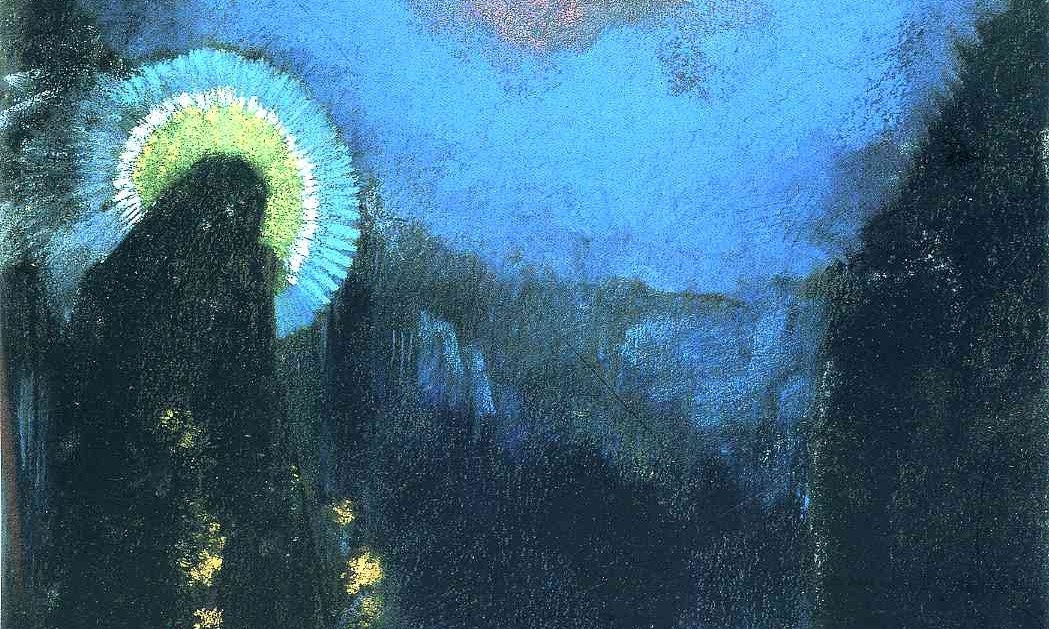In the year 431, the Council of Ephesus gave Mary the title of Theotokos, or “God-bearer.” In light of this, she is commonly called today the Mother of God. Her calling was absolutely unique, as she (and no one else) was asked by God to consent to God Himself being born of her. This is the “magnum mysterium,” the great mystery, that she gives back to God the human nature He gave her at her creation, that He might dwell in it as true man, so He might save man. May is a month dedicated to Mary, so I offer the following poem (or, attempt at a poem) to honor Mary and to praise God for saving us in such a way.
“Theotokos”
I.
Why make more of it than it was?
She was poor, Jewish, and pregnant,
bent over at home, with sleeves rolled
and flour coating her arms,
unshowered and sweating and simple
and God bending and begging
to borrow the borrowed humanity
she had of him? No.
We’ve grown up and finally seen
That these stories are only stories.
Tell me, do angels smell?
What scent do they leave
as they hurry back to God?
I thought they were rather busy
dancing on the heads of pins.
And where did he get half his chromosomes
if God just waved a finger?
No one was there to see it,
and no one ought to have been
with nothing there to see.
You and your making more of things
are, gladly, being unmade.
II.
Yet why all this blessed noise,
Boasting of bold things
of some out-of-the-way girl?
Explain the praise of years and years,
the prayers of poor and of princes,
or naming of newborns by her
and chapels, and the songs which fill them,
calling on Mary as muse.
Why draw her dressed in the sun,
shod, not with shoes, but the moon?
The reason, quite simply is this:
If the tale told is true,
then the fate of us all
hung on a point,
who happened to be a girl.
Deep calling on deep
in the weakness of words,
and from her stern and simple soul
came forth a single sound.
Then everything changed.
And all is fable if she is fable.
III.
A maiden meek and utterly mild,
grown heavy with heavenly child,
whose heart beneath her heart
is the health of all the world.
The saint of the swollen belly,
first world of God in the world,
first welcome offered Him
from the marginalized
East of Eden.
“She gave milk to our bread,”
her body become food
of his body become food
for all;
a lion’s whelp, pressed at breast,
consuming what she consumed,
who would consume all in consuming him.
“She feeds the hungry with good things.”
IV.
She is Athene,
wisdom, beloved by all,
hearing the hushed call through the lattice
of her Mercurial son, soon flown
and off to his charted course.
She is Art
if all art is making,
molding from the art that surrounds us,
from the clay of creation;
a creature composed of,
crowned with, creation,
for whose brow, stars struggle
to supply a crown.
We cannot make too much of her,
she, the looked-for, dreamt-of dream
of gods and men and their making.
There in the must of a cellar
stands forth, before no eyes,
now all eyes,
the formulation of all unformulated
and wildest wishes, arrived,
under the linen folds of a simlah
her body, become a place
of meeting of Maker and made,
made mother of Maker, still maid,
herself, held in being, holding in herself
Being-become-human-being.
Morning star at the close of our night,
announced to, now announcing, the dawn.
She, the spring of our winter
which is over, asked
to give him her heated blood,
to give and spill and wash the world,
and remake all that’s unmade
in the hearts of the sons of men.
✠
Image: Odilon Redon, The Boat (Virgin with Corona)







